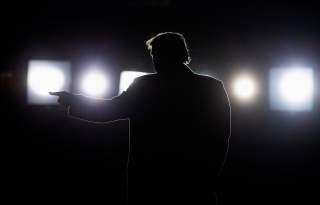Trump's Cabinet Shuffle Will Shake Up the Presidential Election
Will Trump head into the 2020 presidential election with a stronger team?
More change and disruption looms for the Trump administration. United Nations Ambassador Nikki Haley has already announced her resignation. Now, after the midterm elections, as Politico reports, President Donald Trump plans to oust or accept the resignations of multiple cabinet officials, including Defense Secretary James Mattis, Commerce Secretary Wilbur Ross, Homeland Security Secretary Kirstjen Nielsen, and Interior Secretary Ryan Zinke. Trump officials are depicting it as an attempt to demonstrate that the president will head into the 2020 presidential election with a stronger team.
The last time a president reshuffled his team to this extent came in 1979 after Jimmy Carter delivered an address that became known as the “national malaise” speech. Carter was intent on rooting out what he called “disloyalty” and accepted the resignations of six cabinet members. The reshuffle was supposed to indicate that he was heading into the 1980 election with renewed vigor and intensity of purpose. It never happened. Ronald Reagan and the GOP seized upon Carter’s move as the latest indication of his constant temporizing and flaccidity of purpose.
For Trump, however, the move may not have the same effect. To an unprecedented extent, Trump has been able to dominate the news cycle. He will depict himself—much as he did on The Apprentice—as the demanding boss who has found key aspirants wanting and is moving on to a new cast of characters.
No doubt Trump stated in October 2017, “There are those that are saying it’s one of the finest group of people ever assembled as a Cabinet.” But that was then. If there is anything that Trump has shown himself a genius at, it is manipulating the members of his entourage, pitting one against the other, whether it was as head of the TV show or as president. In many ways, his performance has been one and the same. He has already dispensed with a wide variety of subordinates, ranging from Michael Flynn to Steve Bannon, from Omarosa Manigault Newman to Anthony Scaramucci. No matter how highly they may value themselves, they are nothing more than peripheral figures orbiting around Trump’s presidential sun.
Indeed, as he heads into the final days before the midterm elections, Trump has, as far as possible, turned it into a referendum on himself. Once again, he is flouting conventional political wisdom, which is that a president with low overall popularity ratings should not seek to nationalize the midterms. Trump has reverted to the playbook that won him election in 2016, when he defied the naysayers to defeat Hillary Clinton. He continues to inveigh against the billionaire George Soros, “globalists” and a “corrupt media.” As Dan Balz notes, “Trump has been doing everything he can to make sure any surge in turnout in behalf of Democrats is matched as much as possible by turnout among Republicans. His campaign activity is impressive for its breadth and nearly nonstop pace. But even the president is not in control of events, as these past few days have shown, and he wasn’t happy about it.”
The first event was, of course, the pipe bombs that suspect Cesar Sayoc is accused of sending in a nationwide assassination attempt against figures such as Barack Obama and Hillary Clinton. Sayoc’s enthusiasm for Trump, including a white van festooned with Trump decals, has prompted a fresh round of accusations against Trump that he is heightening tensions, indeed helping to abet an efflorescence of far right sentiments and actions, inside America.
These contentions about Trump were amplified by the shooting in Squirrel Hill, Pittsburgh at the Tree of Life synagogue, where eleven Jewish worshippers were murdered by a white nationalist named Robert D. Bowser, who was, among other things,apparently enraged by the caravan in Central America heading towards the southern border. “All Jews must die,” he shouted. In particular he was incensed by the actions of the Hebrew Immigrant Aid Society, which was founded in 1881 to assist Jews who were emigrating from the Russian empire. Bowser wrote on a right-wing website, “HIAS likes to bring invaders in that kill our people. I can’t sit by and watch my people get slaughtered. Screw your optics, I’m going in.” In the Washington Post, Julia Ioffe singled out Trump for criticism: “Trump has had enough to say about the Jews that his supporters may easily make certain pernicious inferences. During the campaign, he joked at a meeting of the Republican Jewish Coalition that it wouldn’t support him `because I don’t want your money.’ A campaign-era tweet about Hillary Clinton superimposed a Star of David over dollar bills.”
Trump himself has veered between denouncing the massacre and complaining yesterday that he was experiencing “a bad hair day” because he got caught in the rain. Meanwhile, his press secretary Sarah Huckabee Sanders is attacking the coverage of Trump: “Is there any tragedy the Washington Post won’t exploit to attack President @realDonaldTrump? The evil act of anti-Semitism in Pittsburg was committed by a coward who hated President Trump because @POTUS is such an unapologetic defender of the Jewish community and state of Israel.” Tensions are steadily rising in America, but at his rally in Illinois last night, POTUS entered to the strains of Pharrell Williams’ song “Happy.” The results of the midterm elections may go a long way toward determining how ebullient Trump is over the next two years.
Jacob Heilbrunn is the editor of the National Interest. You can follow him @Jacobheilbrunn.

